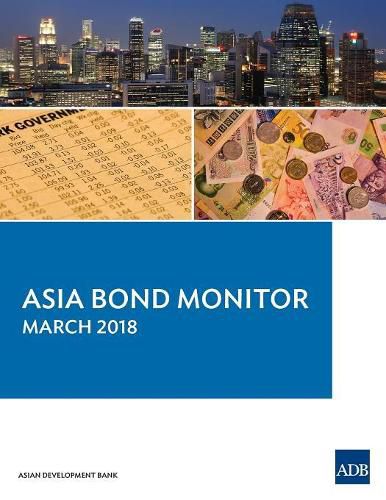Readings Newsletter
Become a Readings Member to make your shopping experience even easier.
Sign in or sign up for free!
You’re not far away from qualifying for FREE standard shipping within Australia
You’ve qualified for FREE standard shipping within Australia
The cart is loading…






This title is printed to order. This book may have been self-published. If so, we cannot guarantee the quality of the content. In the main most books will have gone through the editing process however some may not. We therefore suggest that you be aware of this before ordering this book. If in doubt check either the author or publisher’s details as we are unable to accept any returns unless they are faulty. Please contact us if you have any questions.
The Asia Bond Monitor reviews recent developments in East Asian local currency bond markets along with the outlook, risks, and policy options. It covers the 10 members of the Association of Southeast Asian Nations plus the People’s Republic of China; Hong Kong, China; and the Republic of Korea.
The continued recovery in the global economy has contributed to a rally in financial markets that lasted through January. Financial risk and volatility indicators-such as the CBOE Volatility Index, credit default swap spreads, and emerging market bond spreads-narrowed in January. However, a price correction in equity markets and an uptick in risk indicators were observed in the first week of February due to uncertainties in US macroeconomic policies and expectations of accelerated rate hikes by the Federal Reserve. Financial markets and volatility indicators subsequently stabilized, beginning in the middle of February.
This issue of the Asia Bond Monitor includes two special discussion boxes. Box 1 discusses the short-term and long-term effects of global monetary policy normalization and the resultant tighter global liquidity in financial markets in the region.
Box 2 discusses the effects of tighter global liquidity on financial stability in the region. It highlights the implications of rising interest rates on the region’s private debt that accumulated during the low global interest rate environment, and the impacts on the region’s aggregate demand and economic growth.
$9.00 standard shipping within Australia
FREE standard shipping within Australia for orders over $100.00
Express & International shipping calculated at checkout
This title is printed to order. This book may have been self-published. If so, we cannot guarantee the quality of the content. In the main most books will have gone through the editing process however some may not. We therefore suggest that you be aware of this before ordering this book. If in doubt check either the author or publisher’s details as we are unable to accept any returns unless they are faulty. Please contact us if you have any questions.
The Asia Bond Monitor reviews recent developments in East Asian local currency bond markets along with the outlook, risks, and policy options. It covers the 10 members of the Association of Southeast Asian Nations plus the People’s Republic of China; Hong Kong, China; and the Republic of Korea.
The continued recovery in the global economy has contributed to a rally in financial markets that lasted through January. Financial risk and volatility indicators-such as the CBOE Volatility Index, credit default swap spreads, and emerging market bond spreads-narrowed in January. However, a price correction in equity markets and an uptick in risk indicators were observed in the first week of February due to uncertainties in US macroeconomic policies and expectations of accelerated rate hikes by the Federal Reserve. Financial markets and volatility indicators subsequently stabilized, beginning in the middle of February.
This issue of the Asia Bond Monitor includes two special discussion boxes. Box 1 discusses the short-term and long-term effects of global monetary policy normalization and the resultant tighter global liquidity in financial markets in the region.
Box 2 discusses the effects of tighter global liquidity on financial stability in the region. It highlights the implications of rising interest rates on the region’s private debt that accumulated during the low global interest rate environment, and the impacts on the region’s aggregate demand and economic growth.